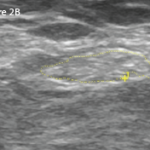Although the wide utilization of disease-modifying anti-rheumatic drugs (DMARDs) and biologic agents has improved the quality of life for patients with rheumatoid arthritis (RA), spondyloarthritis (SpA), juvenile idiopathic arthritis (JIA) and systemic lupus erythematosus (SLE), rates of total hip arthroplasty (THA) and total knee arthroplasty (TKA) remain high. Patients with rheumatic conditions report significant improvement in pain and function after THA or TKA, yet critical outcomes, such as infection, dislocation and readmission are reported to be higher for patients with RA, SpA or SLE compared with patients with osteoarthritis.
A new guideline developed by the ACR and the American Association of Hip and Knee Surgeons addresses the perioperative use of antirheumatic drug therapy. Specifically, it provides recommendations on the use of traditional disease-modifying antirheumatic drugs, biologic agents, tofacitinib and glucocorticoids in adults with RA; SpA, including ankylosing spondylitis and psoriatic arthritis; JIA; or SLE undergoing elective THA or TKA.
Methods: A panel of rheumatologists, orthopedic surgeons specializing in hip and knee arthroplasty, and methodologists was convened to construct the key clinical questions to be answered in the guideline. A multi-step systematic literature review was then conducted, from which evidence was synthesized for continuing vs. withholding antirheumatic drug therapy and for optimal glucocorticoid management in the perioperative period.
A patient panel was convened to determine patient values and preferences, and the Grading of Recommendations Assessment, Development and Evaluation methodology was used to rate the quality of evidence and the strength of recommendations, using a group consensus process through a convened voting panel of rheumatologists and orthopedic surgeons. The strength of the recommendation reflects the degree of certainty that benefits outweigh harms of the intervention, or vice versa, considering the quality of available evidence and the variability in patient values and preferences.
The Recommendations: The guideline provides recommendations regarding when to continue, when to withhold and when to restart these medications, and the optimal perioperative dosing of glucocorticoids. The guideline includes seven recommendations, all of which are conditional and based on low- or moderate-quality evidence:
- For patients with RA, SpA including AS and PsA, JIA or SLE, continue the current dose of methotrexate, leflunomide, hydroxychloroquine and/or sulfasalazine (nonbiologic DMARDs) for patients undergoing elective THA or TKA.
- For patients with RA, SpA including AS and PsA, JIA or SLE, withhold all current biologic agents prior to surgery in patients undergoing elective THA or TKA, and plan the surgery at the end of the dosing cycle for that specific medication.
- For patients with RA, SpA including AS and PsA, or JIA, withhold tofacitinib for at least seven days prior to surgery in patients undergoing THA or TKA.
- For patients with severe SLE, continue the current dose of mycophenolate mofetil, azathioprine, cyclosporine, or tacrolimus through the surgical period in all patients undergoing THA or TKA.
- For patients with SLE that is not severe, withhold the current dose of mycophenolate mofetil, azathioprine, cyclosporine or tacrolimus one week prior to surgery in all patients undergoing THA or TKA.
- For patients with RA, SpA including AS and PsA, JIA, or SLE: Restart biologic therapy in patients for whom biologic therapy was withheld prior to undergoing THA and TKA once the wound shows evidence of healing (typically ~14 days), all sutures/staples are out, there is no significant swelling, erythema or drainage, and there is no clinical evidence of non-surgical site infections, rather than shorter or longer periods of withholding.
- For patients with RA, SpA including AS and PsA, or SLE, continue the current daily dose of glucocorticoids in patients who are receiving glucocorticoids for their rheumatic condition and undergoing THA or TKA, rather than administering perioperative supra-physiologic glucocorticoid doses (so-called stress dosing).
To review the complete recommendations with all specifications and caveats, read the full article.

